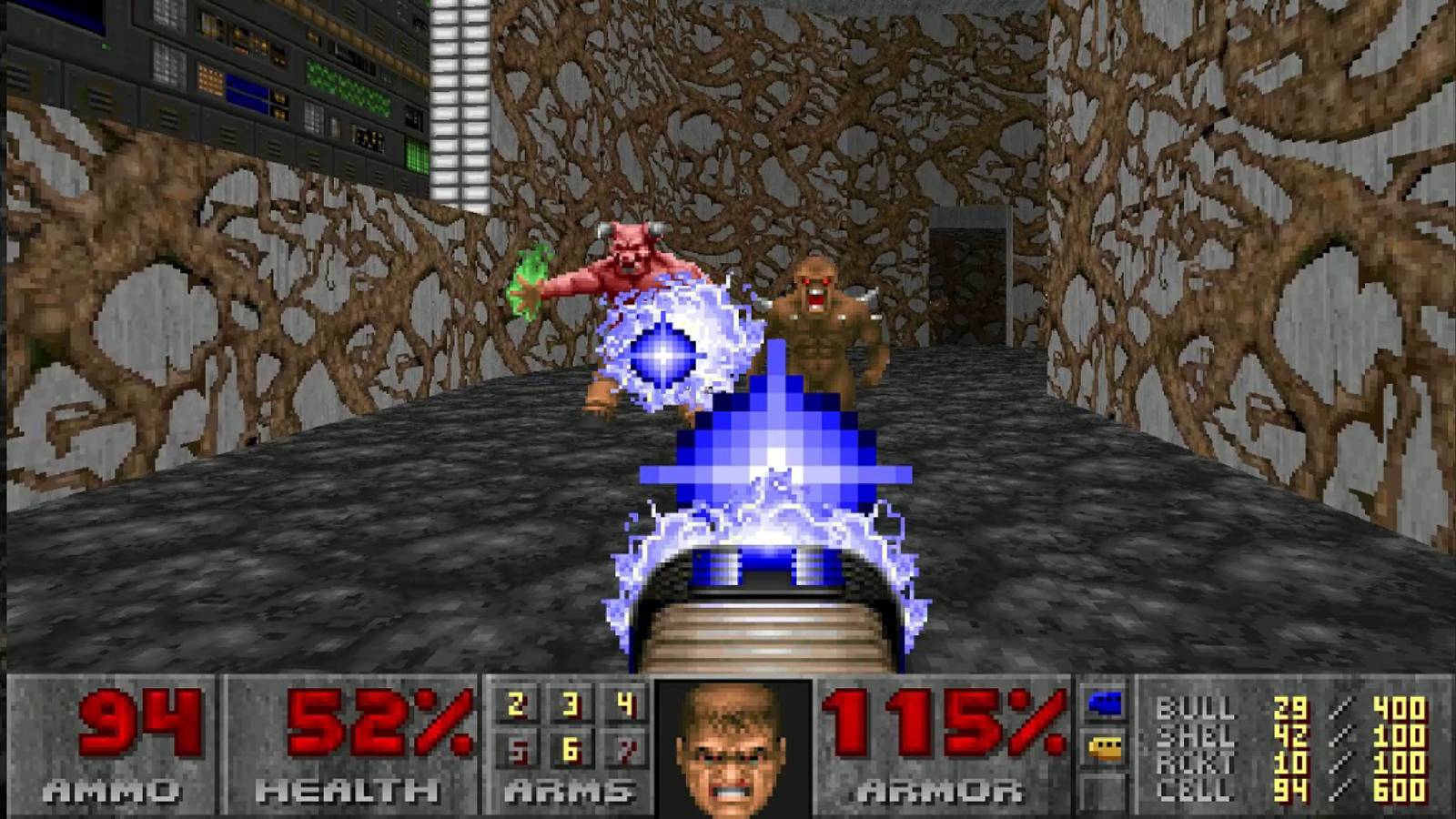Doom doesn’t need a CPU – the classic shooter has been embedded on a custom chip
This is definitely a new take on the nostalgia-inducing FPS

Doom is a fondly remembered classic shooter, and if you need any evidence of that, one enterprising fan has taken the original game and literally turned it into a custom chip.
The sole purpose of the so-called ‘Doom-Chip’, which is the brainchild of graphics and game developer Sylvain Lefebvre, is to run the first level of Doom – and that’s all.
The DooM-chip! It will run E1M1 till the end of times (or till power runs out, whichever comes first).Algorithm is burned into wires, LUTs and flip-flops on an #FPGA: no CPU, no opcodes, no instruction counter. Running on Altera CycloneV + SDRAM. (1/n) pic.twitter.com/wd7j4JnfWnMay 8, 2020
As you can see from Lefebvre’s tweet, the game is running on an Altera Cyclone FPGA board, meaning that Doom is no longer software, but directly embedded in a piece of hardware – no CPU needed.
- Intel and AMD both just made budget PC gaming so much better
- AMD graphics cards: the best AMD GPUs you can buy today
- But which are the best overall graphics cards?
That said, strictly speaking, there is a little bit of coding involved (in Verilog, a hardware description language) and appropriately enough there are 666 lines of code needed with this FPGA implementation of Doom.
No monsters
As you can see from the video on Twitter, not only is the experience limited to one level (E1M1), but there are no monsters or actual shooting, so this is a pretty basic rendition. It’s not really of any practical use, but it’s interesting to see a game implemented in such a way as a demonstration of the kind of tricks you can get up to with a custom chip and some serious tech know-how.
Lefebvre observes: “Doom was released as I was learning how to code graphics. It was, and remains, an immense inspiration and motivation boost. I spent countless hours making levels, hacking the game and hex dumps of doom.exe / doom.wad. This was a good opportunity to dive back into it!”
He used the original source code for Doom in his project, naturally, as well as resources including the Doom Game Engine Black Book (which you can see in the video above) and Unofficial Doom Specs v1.666 (not that everything to do with Doom revolves around the number 666, of course).
Get daily insight, inspiration and deals in your inbox
Sign up for breaking news, reviews, opinion, top tech deals, and more.
- Check out the best gaming PCs of 2020
Via Engadget
Darren is a freelancer writing news and features for TechRadar (and occasionally T3) across a broad range of computing topics including CPUs, GPUs, various other hardware, VPNs, antivirus and more. He has written about tech for the best part of three decades, and writes books in his spare time (his debut novel - 'I Know What You Did Last Supper' - was published by Hachette UK in 2013).